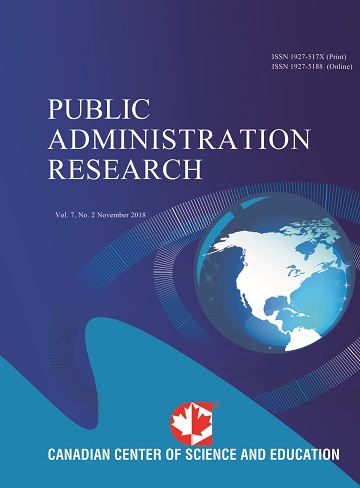Role of Effective Monitoring and Evaluation in Promoting Good Governance in Public Institutions
- Nor Ali Mohamed
- Dayah Abdi Kulmie
Abstract
This study examined the impact of monitoring and evaluation (M&E) on the promotion of good governance in public institutions. The main objectives were to evaluate how accountability, management decision-making, and organizational learning contribute to good governance. The research design used for this study was correlational, with data collected through a questionnaire administered to 115 respondents from the Ministry of Interior, Federal Affairs, and Reconciliation. Data analysis was conducted using SPSS software, revealing that accountability, management decision-making, and organizational learning as M&E tools play a significant role in advancing good governance within public institutions. However, these three M&E elements only demonstrate a moderate positive correlation with good governance. In conclusion, it is evident that M&E can serve as a crucial catalyst for promoting effective practices of good governance within public institutions. Moreover, this text underscores the imperative for the institutionalization, financing, and strategic placement of monitoring and evaluation (M&E) in order to fully capitalize on its capabilities. The investigation proposes that M&E should transcend being a mere tool for meeting regulatory obligations and should instead be integrated into policy formulation, planning procedures, and service provision. By doing so, organizations can acquire valuable perspectives into their endeavors and achievements that will inform judicious decision-making based on solid evidence.
- Full Text:
 PDF
PDF
- DOI:10.5539/par.v12n2p48
Journal Metrics
h-index (2017): 7
i10-index (2017): 6
h5-index (2017): 7
h5-median (2017): 13
Index
- COPAC
- CrossRef
- DTU Library
- EBSCOhost
- EuroPub Database
- Excellence in Research for Australia (ERA)
- Genamics JournalSeek
- Ghent University Library
- Google Scholar
- Harvard Library
- Infotrieve
- Jisc Library Hub Discover
- LOCKSS
- Mir@bel
- Norwegian Centre for Research Data (NSD)
- Open J-Gate
- PKP Open Archives Harvester
- Publons
- ROAD
- Scilit
- SHERPA/RoMEO
- Stanford Libraries
- Ulrich's
- UniCat
- Universe Digital Library
- UoS Library
- WorldCat
Contact
- Gabriel TaiEditorial Assistant
- par@ccsenet.org
